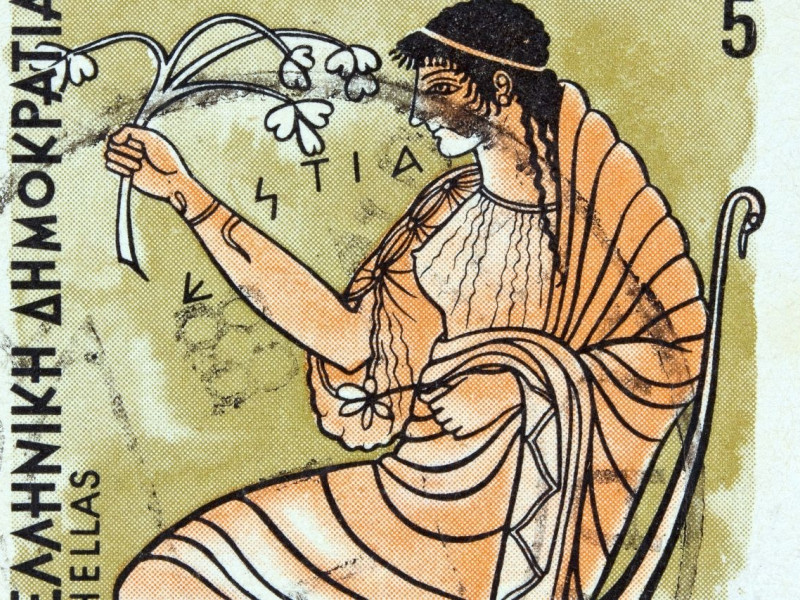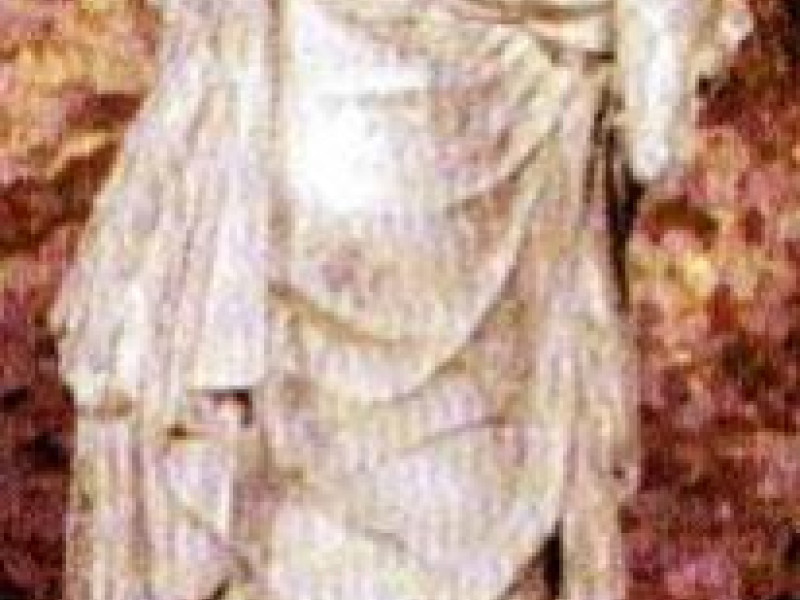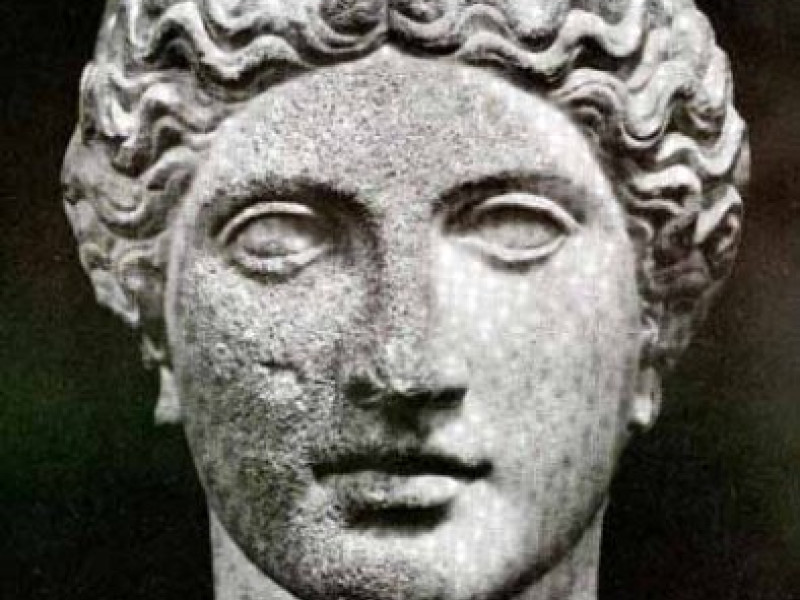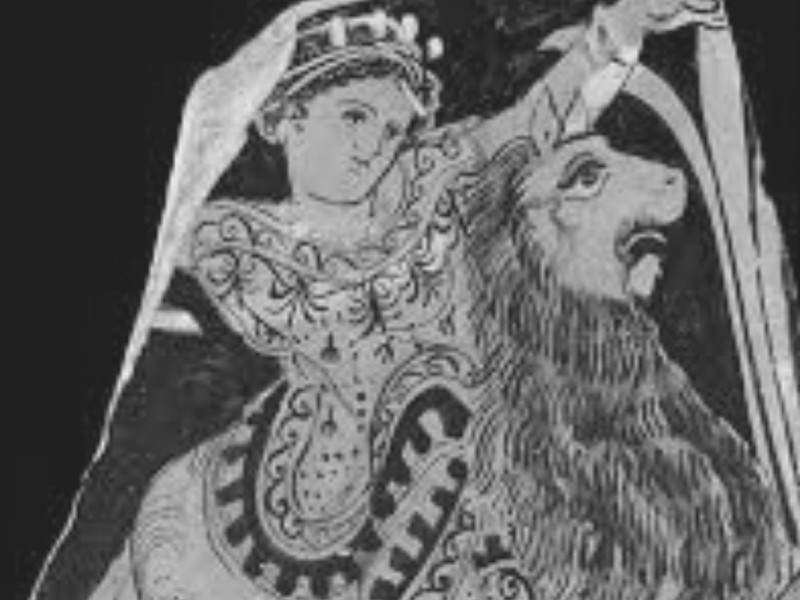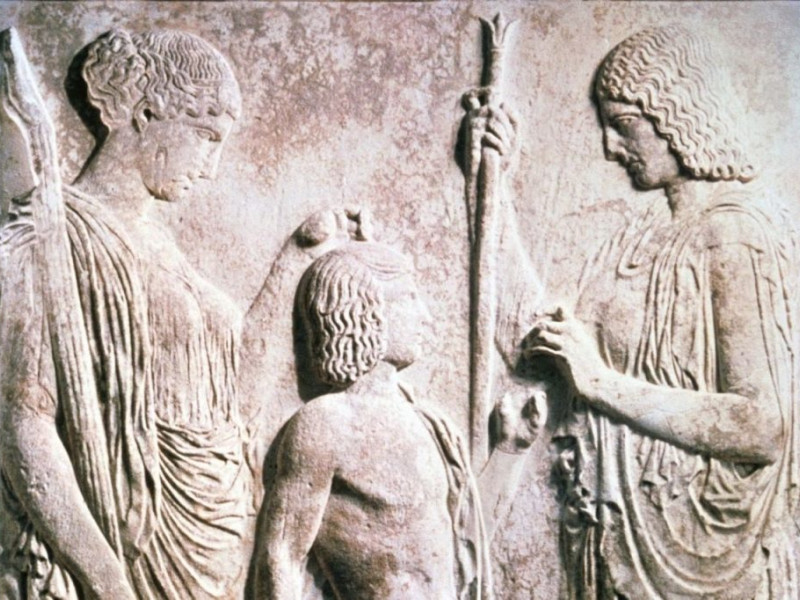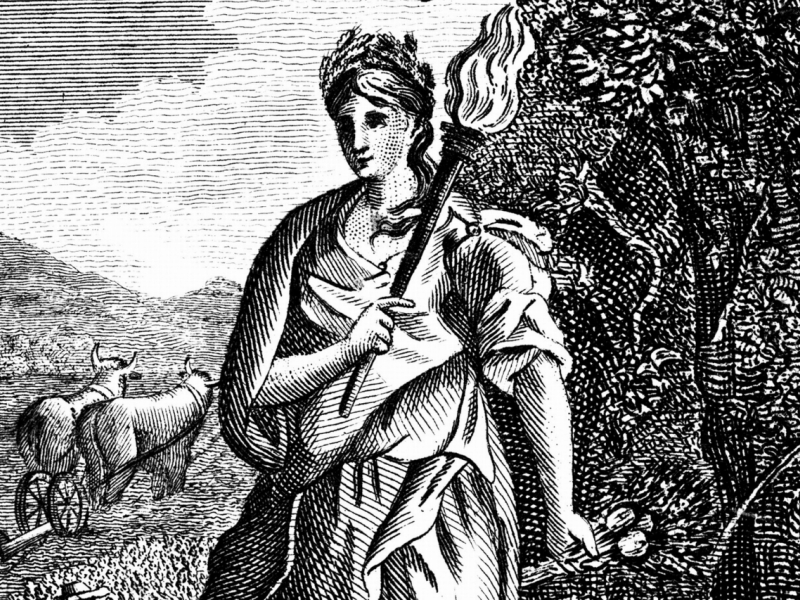Hestia (Vesta)
Hestia was the virgin goddess of the hearth. Hestia was the eldest child of the Titans, Cronus and Rhea. The Romans called her Vesta.
Hestia was one of the children to be swallowed by her father. Later, Cronus was tricked into drinking emetic, and vomited her and her siblings out. She was the last to leave her father's belly. So in a way, she was both first-born (from Rhea) and last-born (disgorged from Cronus).
After the war against the Titans, Hestia managed to persuade her brothers, Poseidon and Hades, and her nephew Apollo of her wish to remain a virgin. According to the Hymn of Aphrodite, she swore an oath upon the head of Zeus of not wedding anyone and remaining forever chaste and untouched by sexual love; such an oath forced Poseidon and Apollo to find wives among other goddesses, or else they would risk confrontation with Zeus.
According to the Fasti, the Roman poet Ovid wrote that Priapus, son of Dionysus and Aphrodite, almost raped Hestia when she and the other gods had fallen into a slumber after a feast. Hestia (Vesta) only woke up when she heard an ass braying as the god was on the point of mounting her. The goddess' scream frightened off Priapus.
Although there is very little information about Hestia in myths and literature, Hestia was nevertheless an important goddess in both Greek and Roman religions.
In the Homeric Hymns To Hestia, she attended the house of Apollo (temple) in Delphi. She was held in the highest honour, both among the gods and among mortals. She was worshipped everywhere because there are hearths in every home and temple. Each city kept a hearth that had a consecrated fire burning perpetually in a chief public building. Fire from this hearth was taken whenever they sought a new colony.
Mortals, when holding banquets, would pour wine in offerings to the goddess, both first and last: one to open the banquet, and the other to close it (possibly referring that she was first-born and last-born status, as mentioned earlier). At the beginning of every meal at home, a small offering was thrown into the hearth flame. A song was sung in her praise, welcoming the goddess to the home.
After a newborn baby was given a name, the infant was carried to the hearth where someone prayed for a blessing upon the child.
For the Romans, she was the all-important household goddess, the goddess of the hearth and the hearth fire. Her temple was situated within the Palatine in Rome where the Vestal Virgins maintained the burning of the sacred fire. See Vesta in the Roman Deities for more information.
By Jimmy Joe

